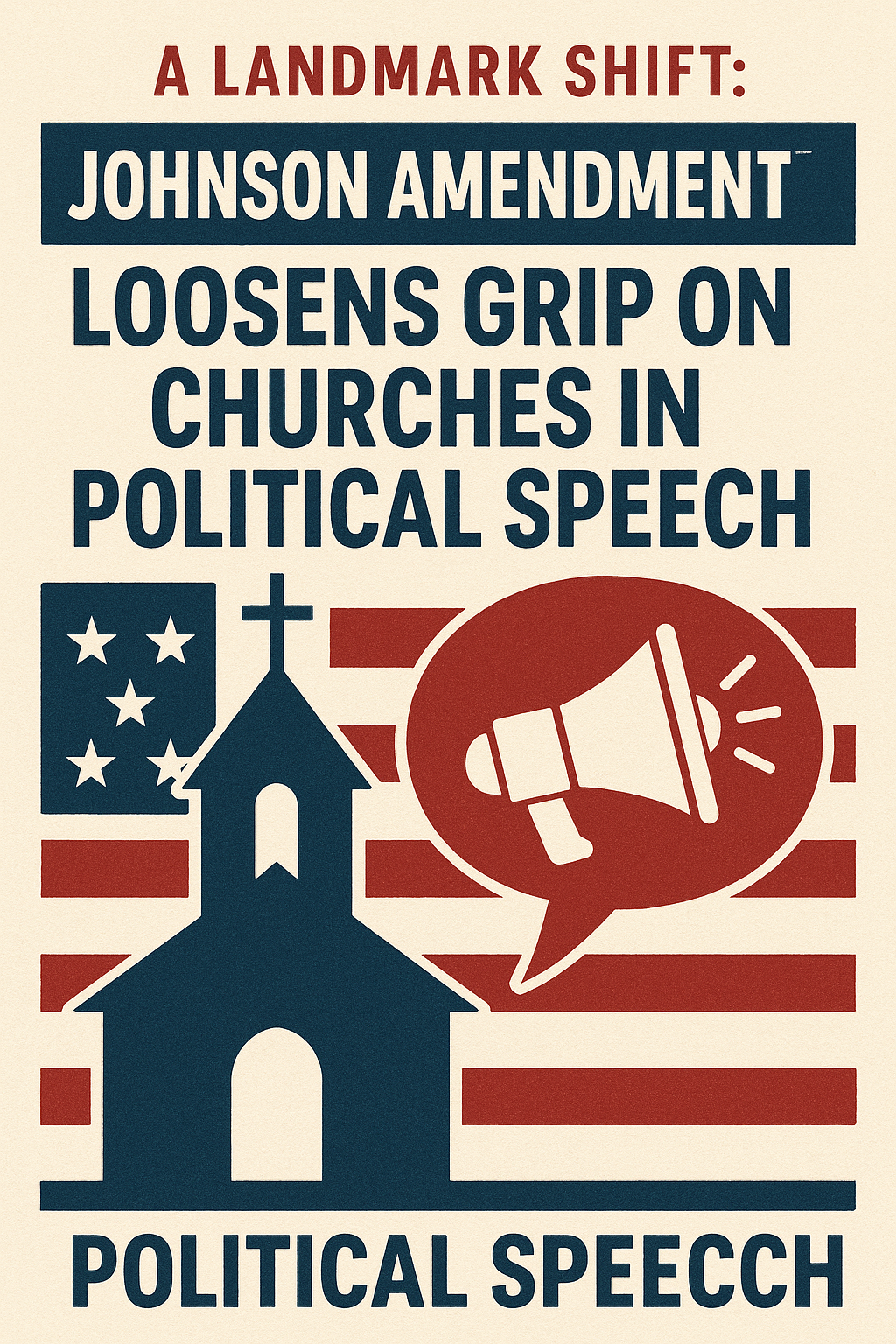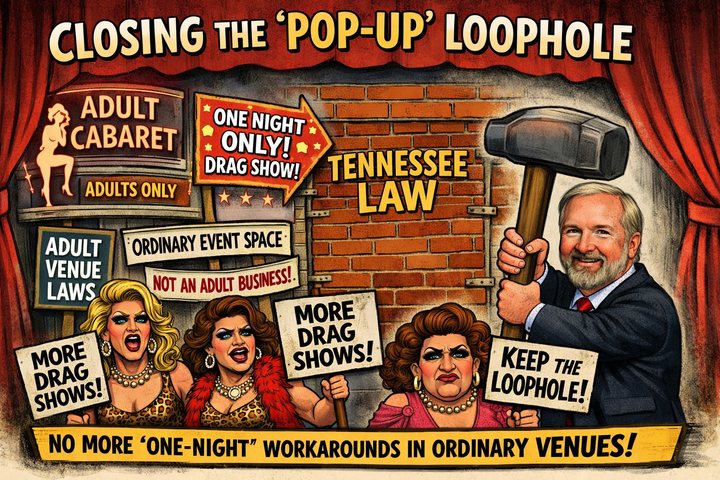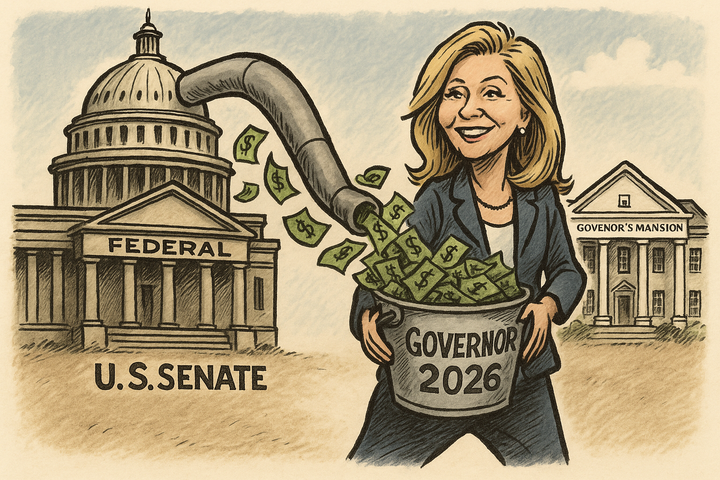Churches can now speak freely on politics without risking tax-exempt status—but politicians may exploit this to access pulpits and influence.
Effective July 7, 2025, the IRS has formally updated its enforcement posture regarding the Johnson Amendment, effectively ending restrictions on political speech by churches and religious leaders during worship services. In a settlement agreement filed in federal court in the Eastern District of Texas, the IRS clarified that it will not enforce the Johnson Amendment against churches for faith-based political commentary shared with their congregations through customary channels during regular services.
This shift stems from a lawsuit brought by the National Religious Broadcasters Association and others, who claimed the amendment violated First Amendment protections of free speech and free exercise of religion. The Johnson Amendment — a 1954 tax provision championed by then-Senator Lyndon B. Johnson — had prohibited 501(c)(3) tax-exempt entities, including churches, from endorsing or opposing political candidates.
The Johnson Amendment was originally introduced to silence nonprofit organizations that were critical of Johnson during his 1954 reelection campaign. It was quickly passed by Congress without hearings or debate and inserted into the tax code as a way to prohibit 501(c)(3) organizations from engaging in political endorsements or opposition. While it was broadly applied, enforcement was rare and selective, often depending on political pressures and shifting IRS guidance. For decades, religious leaders have challenged its constitutionality, arguing that it unfairly restricts their ability to speak freely on political matters from a moral or theological perspective.




